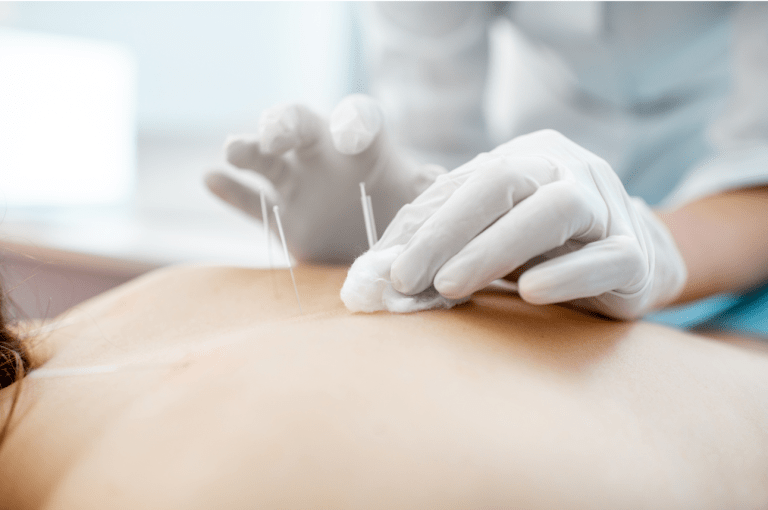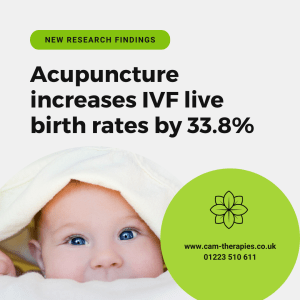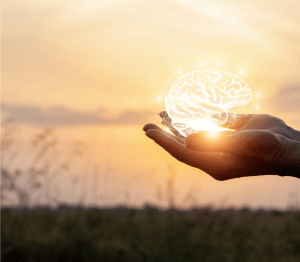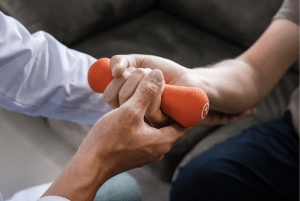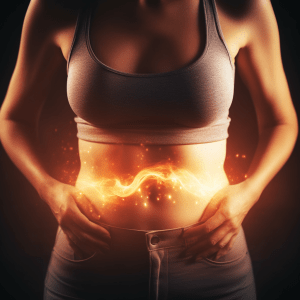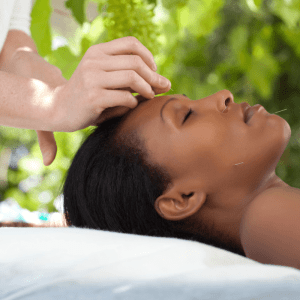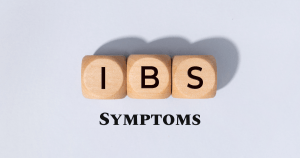In a hurry? Read a summary answer
The key benefits of acupuncture are:
Acupuncture therapy is backed up by thousands of research studies
Acupuncture treatment is recommended in almost 4,000 clinical guidelines
Acupuncture treatment provides long-lasting benefits
Acupuncture treatment can help with more than one symptom
Patients report high satisfaction levels
Acupuncture needles are comfortable
Acupuncture can be used alongside other treatments
Acupuncture can be used for physical and emotional well-being.
Table of Contents
Introduction
Acupuncture is one of the oldest and most respected forms of complementary and alternative medicine in the world. It has been used for over 3,000 years to treat a variety of illnesses.
Its popularity and acceptance, both by patients and by the medical community, are increasing year after year. So, what are the key benefits of acupuncture?
Acupuncture is proven to work by thousands of scientific studies
Over the last 50 years, tens of thousands of research studies, including randomized controlled trials and systematic reviews, have been published. They show that acupuncture is an effective treatment for a wide variety of medical conditions.
In 2002, the World Health Organisation (WHO) published a report on acupuncture effectiveness. They identified 31 conditions for which acupuncture was proven to be effective and further 63 conditions for which there was at least some evidence that acupuncture could help.1
In 2017, authors of The Acupuncture Evidence Project, after reviewing thousands of trials, found moderate to high quality evidence of acupuncture effectiveness for 117 conditions out of 122 conditions studied.2 Stephen Janz, one of the authors, concluded:
“It is no longer possible to say that the effectiveness of acupuncture can be attributed to the placebo effect or that it is useful only for musculoskeletal pain”.
In the UK, in 2021, National Institute for Clinical Excellence (NICE) published guidelines on chronic pain management. Acupuncture is one of only four evidence-based treatments recommended for chronic primary pain.3
In their 2021 guidelines ‘Headaches in over 12s: Diagnosis and Management’, NICE also recommend acupuncture for the prophylaxis of tension headaches and migraines.4
Worldwide, 3,809 clinical guidelines make 9,340 positive recommendations for acupuncture. Of these, 5,572 recommendations are made for acupuncture pain relief, and 3,768 recommendations are made for acupuncture treatment of non-pain symptoms.5
Acupuncture helps your body heal naturally
The human body has an amazing ability to heal itself. When we are sick or injured, our bodies produce various healing chemicals to help us recover. Stimulation of acupuncture points has been shown to influence the central nervous system, promoting the release of neurotransmitters and enhancing the body’s natural healing processes.
For example, to relieve pain, acupuncture triggers an increase in the levels of endorphins, your body’s natural painkillers. In contrast, some prescription opioid drugs work by mimicking the action of endorphins. But, unlike acupuncture, opioid drugs are addictive, have side effects and are proven to cause at least 1.5% of deaths in the general population and 20% of deaths in younger adults aged 24-35.6
Acupuncture treatment is safe
Safety studies show that acupuncture, when administered by a qualified acupuncturist, is safe for everyone, including adults, babies and children,7 the elderly, pregnant people,8 patients undergoing cancer treatment9 and people with a compromised immune system.
A systematic review of the safety of acupuncture published in The British Medical Journal in 2021 concluded that:
“Acupuncture can be considered among the safer treatments in medicine. SAEs [serious adverse effects] are rare, and the most common minor AEs [adverse effects] are very mild”.10
The authors of the study highlight that the low incidence of adverse events is linked to a high level of acupuncture training. So patients should ensure that they see only fully qualified acupuncturists.
Acupuncture has lasting effects
Another benefit of acupuncture is that patients often feel long-lasting improvements in their health after completing a course of treatment.
In 2017 large meta-analysis study that included 29 trials and 17,922 patients suffering from chronic pain found that 90% of the benefits of acupuncture were sustained at 12 months when compared to patients who had no acupuncture.11
The lasting effects of acupuncture have been documented in other health conditions, including menopausal symptoms,12 constipation,13 migraines,14,15 irritable bowel syndrome,16 improved AMH hormone levels in patients with Polycystic Ovarian Syndrome (PCOS),17 and more.
This long-term effect is attributed at least in part to acupuncture treatment’s ability to induce neuroplastic changes in the brain. 18 In other words, acupuncture literally rewires your brain to function better. This is something that very few treatments can do.
Acupuncture helps more than one symptom
One of the advantages of acupuncture over other treatments, such as pharmaceutical drugs, is that more than one symptom can be addressed at the same time. For example, patients who have chronic pain often experience depression and sleeping difficulties. Acupuncture can help with all of these symptoms at the same time.
Acupuncture patients have a high level of satisfaction
Acupuncture patients report a high level of satisfaction. For example, in one study, 79% of acupuncture patients found that acupuncture provided at least some help with their primary condition, while 55% reported a great deal of help.19
Acupuncture needles are comfortable
Acupuncture is not only effective, but it is also a comfortable and enjoyable experience. Acupuncturists use very thin needles, as thin as human hair (acupuncture needles 0.12-0.25 vs human hair 0.09-0.12mm). So, you will barely feel them when they are inserted.
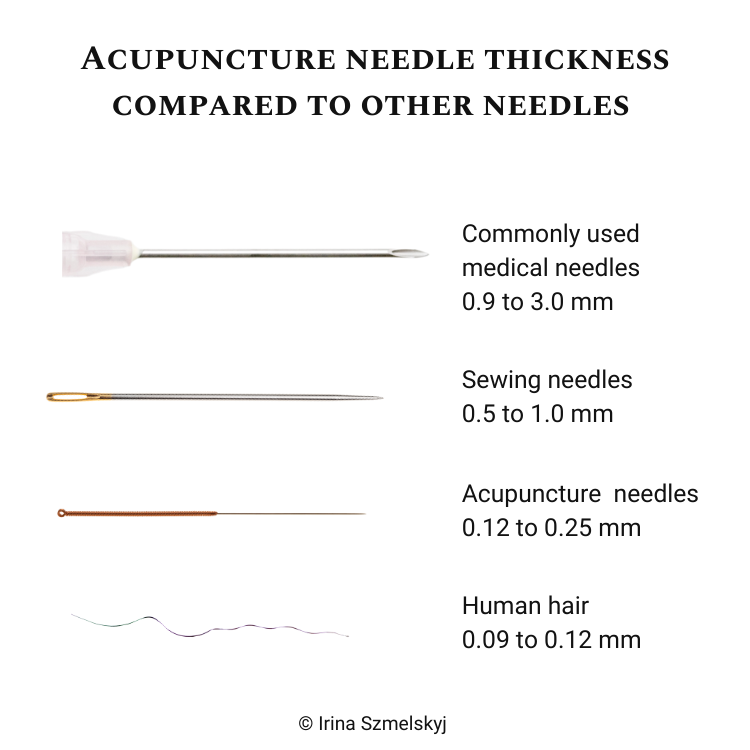
Acupuncture can be used alongside other treatments
Acupuncture can be used in conjunction with other treatments. For example, it is often used by patients undergoing infertility or cancer treatments.20
Acupuncture can be used for physical and emotional wellbeing
Acupuncture is not just for people with illnesses. Regular acupuncture users report overall health benefits, including:21
- Better sense of control over own health
- Reduced stress and increased relaxation levels
- Improved sleep
- Improved emotional wellbeing
- Increased ability to cope more easily with health problems
- Improved sense of health and wellbeing
- Improved relationships with others
Considerations when choosing an acupuncturist
Acupuncture is safe and effective if administered by a fully qualified acupuncture practitioner. In 2020, the World Health Organization updated their recommendations on acupuncture training. WHO recommends that acupuncturists should receive at least 1,568 hours of basic training or 2,468 hours of advanced-level training. This is equivalent to a three years degree level training.
Acupuncture practitioners’ training should include not only detailed knowledge of acupuncture and Traditional Chinese Medicine but must also cover conventional western medicine theory (such as anatomy, physiology, pathology, biochemistry and diagnostics), as well as medical laws, regulations, ethics and research skills.22
It is essential that patients choose an acupuncturist registered with a professional body, that regulates acupuncture needles safe practice and ensures high standards of acupuncture care. In the UK, there are two professional acupuncture bodies that allow only fully-qualified degree trained acupuncturists to register: The British Acupuncture Council and The Association of Acupuncture Clinicians.
Summary
Acupuncture is an evidence-based, safe and effective treatment for a wide range of health conditions. It has been used for over 3,000 years, and its popularity is increasing as more and more people experience its benefits. Acupuncture can be used to treat a single symptom or multiple symptoms at the same time. It can also be used for general wellness. When choosing an acupuncturist, make sure the acupuncturist has received adequate training and is degree-level qualified.
References
1 World Health Organization. Acupuncture: Review and Analysis of Reports on Controlled Clinical Trials. Geneva: 2002.
2 McDonald J, Janz S. The Acupuncture Evidence Project. A Comparative Literature Review. Australian Acupuncture and Chinese Medicine Association 2017.
3 Overview | Chronic pain (primary and secondary) in over 16s: assessment of all chronic pain and management of chronic primary pain | Guidance | NICE. https://www.nice.org.uk/guidance/ng193 (accessed 16 Nov 2022).
4 Recommendations | Headaches in over 12s: diagnosis and management | Guidance | NICE. https://www.nice.org.uk/guidance/cg150/chapter/Recommendations (accessed 16 Nov 2022).
5 Birch S. Update on publications by medical expert groups (Clinical Practice Guidelines, Treatment Guidelines) that make recommendations about acupuncture. 2022.
6 Gomes T, Tadrous M, Mamdani MM, et al. The Burden of Opioid-Related Mortality in the United States. Jama Netw Open 2018;1:e180217–e180217. doi:10.1001/jamanetworkopen.2018.0217
7 Adams D, Cheng F, Jou H, et al. The Safety of Pediatric Acupuncture: A Systematic Review. Pediatrics 2011;128:e1575–87. doi:10.1542/peds.2011-1091
8 Park J, Sohn Y, White AR, et al. The safety of acupuncture during pregnancy: a systematic review. Acupunct Med 2014;32:257–66. doi:10.1136/acupmed-2013-010480
9 Höxtermann MD, Haller H, Aboudamaah S, et al. Safety of acupuncture in oncology: A systematic review and meta-analysis of randomized controlled trials. Cancer Published Online First: 2022. doi:10.1002/cncr.34165
10 Bäumler P, Zhang W, Stübinger T, et al. Acupuncture-related adverse events: systematic review and meta-analyses of prospective clinical studies. Bmj Open 2021;11:e045961. doi:10.1136/bmjopen-2020-045961
11 MacPherson H, Vertosick EA, Foster NE, et al. The persistence of the effects of acupuncture after a course of treatment. Pain 2017;158:784–93. doi:10.1097/j.pain.0000000000000747
12 Lund KS, Siersma V, Bang CW, et al. Sustained effects of a brief and standardised acupuncture approach on menopausal symptoms: post hoc analysis of the ACOM randomised controlled trial. Acupunct Med 2020;38:396–406. doi:10.1177/0964528420920280
13 Wang Y, Liu Y, Zhou K, et al. The duration of acupuncture effects and its associated factors in chronic severe functional constipation: secondary analysis of a randomized controlled trial. Ther Adv Gastroenter 2019;12:1756284819881859. doi:10.1177/1756284819881859
14 Liao C-C, Liao K-R, Lin C-L, et al. Long-Term Effect of Acupuncture on the Medical Expenditure and Risk of Depression and Anxiety in Migraine Patients: A Retrospective Cohort Study. Front Neurol 2020;11:321. doi:10.3389/fneur.2020.00321
15 Slomski A. Acupuncture May Be Effective for Long-term Migraine Prophylaxis. Jama 2017;317:1615–1615. doi:10.1001/jama.2017.4363
16 MacPherson H, Tilbrook H, Agbedjro D, et al. Acupuncture for irritable bowel syndrome: 2-year follow-up of a randomised controlled trial. Acupunct Med 2016;35:acupmed-2015-010854. doi:10.1136/acupmed-2015-010854
17 Leonhardt H, Hellström M, Gull B, et al. Serum anti-Müllerian hormone and ovarian morphology assessed by magnetic resonance imaging in response to acupuncture and exercise in women with polycystic ovary syndrome: secondary analyses of a randomized controlled trial. Acta Obstet Gyn Scan 2015;94:279–87. doi:10.1111/aogs.12571
18 Zhao L, Liu J, Zhang F, et al. Effects of long-term acupuncture treatment on resting-state brain activity in migraine patients: A randomized controlled trial on active acupoints and inactive acupoints. Eur J Integr Med 2014;6:703. doi:10.1016/j.eujim.2014.09.044
19 Cui J, Wang S, Ren J, et al. Use of acupuncture in the USA: changes over a decade (2002–2012). Acupunct Med 2017;35:200–7. doi:10.1136/acupmed-2016-011106
20 Dos Santos S, Hill N, Morgan A, Smith J, Thai C, Cheifetz O. Acupuncture for Treating Common Side Effects Associated With Breast Cancer Treatment: A Systematic Review. Medical Acupuncture. 2010 Jun;22(2):81–97. https://doi.org/10.1089/acu.2009.0730
21 Rhee TG. Perceived Benefits of Utilising Acupuncture by Reason for Use among Us Adults. Acupunct Med 2017;35:460–3. doi:10.1136/acupmed-2017-011490
22 World Health Organization. WHO BENCHMARKS FOR THE TRAINING OF ACUPUNCTURE. 2020.

